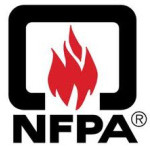- Settore: Fire safety
- Number of terms: 98780
- Number of blossaries: 0
- Company Profile:
Established in 1896, NFPA's mission is to reduce the worldwide burden of fire and other hazards on the quality of life by providing and advocating consensus codes and standards, research, training, and education.
A condition or practice in an occupancy or structure that poses a danger that could reasonably be expected to cause death, serious physical harm, or serious property loss.
Industry:Fire safety
A condition of a mobile unit in which the sum of the moments tending to overturn the unit exceeds the sum of the moments tending to resist overturning.
Industry:Fire safety
A condition in which the application of a component is not within its designed limits or specifications.
Industry:Fire safety
A condition in which the aircraft’s brake and wheel components have become overheated, usually due to excessive braking during landing.
Industry:Fire safety
A condition in which muscle death occurs because of pressure applied by an external load (e.g., a vehicle, parts of a fallen building, a rock, or a squeeze in a tight hole).
Industry:Fire safety
A condition exhibiting any signs of deterioration, including pitting or loss of metal.
Industry:Fire safety
A condition during deflagration in which pressure increases in the unreacted medium ahead of the propagating combustion zone.
Industry:Fire safety
A condition beyond which a structure or member becomes unfit for service and is judged either to be no longer useful for its intended function (serviceability limited state) or to be unsafe (strength limit state).
Industry:Fire safety
A concrete container where the concrete is placed into compression by tendons or by external wire wrapping. (Also called post-tension container. )
Industry:Fire safety
A concentration of constituents in air that exceeds 10 percent of its lower flammable limit (LFL).
Industry:Fire safety
